Movements
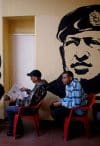
The Bolivarian Revolution in Venezuela has always been shaped by the dangers and demands of achieving socialism through democratic means. Only by reckoning with that complexity can we understand both Venezuela’s current crisis and its recent history. | more…

Benjamin’s philosophy presents problems best addressed not academically, but in dialogue with living political processes. And it is in Latin America, particularly Venezuela, that Benjamin’s ideas have been most vividly illustrated and interrogated. | more…

Women's Labor and Resistance in Eastern India
Neoliberal development has opened the eastern Indian state of Odisha to mining companies and steel conglomerates, threatening the region’s ancient subsistence economies and provoking a fierce resistance, in which women have taken a leading role. | more…
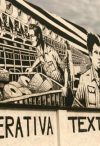
At their best, worker cooperatives are among the most effective examples of radical democracy in action. A recent vogue for cooperatives as high-tech entrepreneurial endeavors, however, seeks to expand rather than challenge the rule of market economics. | more…
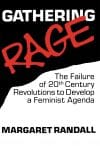
As the smoke clears from the collapse of revolutionary societies from Eurasia to Central America, analysts are searching for the crucial points of weakness that led to the failure of these “socialist experiments.” In Gathering Rage, writer, poet, and activist Margaret Randall describes how two of these revolutions, in Nicaragua and in Cuba, addressed or failed to address a feminist agenda.
Writing as both observer and participant, Randall vividly describes how, in each case, to varying degrees, and in different ways, women’s issues were gradually pushed aside. Combining anecdotes with analysis, she shows how distorted visions of liberation and shortcomings in practice left a legacy that
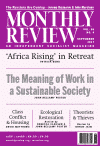
The publication last month of The Age of Monopoly Capital: The Selected Correspondence of Paul A. Baran and Paul M. Sweezy, 1949–1964, edited by Nicholas Baran and John Bellamy Foster, constitutes a landmark for Monthly Review Press. A historical document in itself, The Age of Monopoly Capital is not simply about the writing of their magnum opus, but also provides a window onto an entire era of American life. | more…

The idea of total liberation from work, in its one-sidedness and incompleteness, is ultimately incompatible with a genuinely sustainable society. The real promise of a system of labor beyond capitalism rests not so much on its expansion of leisure time, but rather on its capacity to generate a new world of creative and collective work, controlled by the associated producers. | more…

For this special issue, MR has invited some of the most profound left thinkers in the world to reflect on the legacy of revolutions and counterrevolutions around the world since 1917. Naturally, these authors do not all offer similar perspectives or come to the same conclusions. Nor should they—the historical issues are too complex and the human stakes are too high. | more…
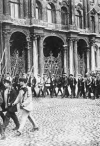
If counterrevolution ultimately triumphed over the revolutionary waves of the twentieth century, how are we to understand this, and what does it mean for the future of world revolution? The answer requires a survey of the whole history of imperialist geopolitics over the last century. | more…
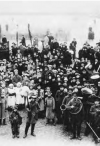
The October Revolution was the first such event in human history that was theoretically conceived and executed according to a plan. It is this theoretical comprehension of the underlying historical conjuncture that explains the revolution’s sweep and energy, the profound changes it wrought in the world, and the extent to which it threatened the very existence of capitalism. | more…
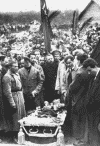
The fundamental humanist values of the Russian Revolution still capture the imagination. As an experience of history and a methodology for transforming the world into a community, the revolution’s legacy has persisted far beyond the failed experiment of state socialism itself. | more…
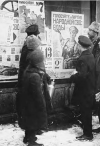
Post-revolutionary societies, in their efforts to combat counterrevolution, have always been confronted with their own contradictions, and with the persistent threat that an exploiting class could reemerge. Instead of the intended socialization and democratization, in many places what resulted was instead state ownership and stultifying bureaucratization of both the economy and the polity. | more…











